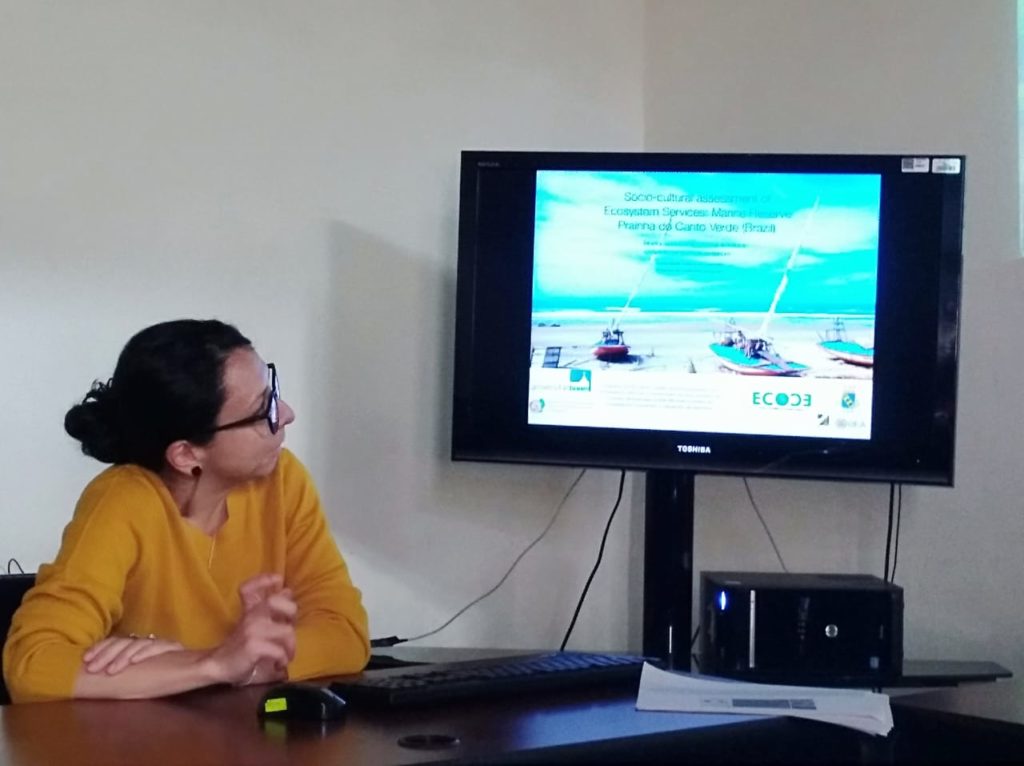by Diana Alexandra Tovar & Jeovah Meireles
Presented at the 15th Conference of the International Society for Ecological Economics in the city of Puebla, México, September 10 to 12, 2018

Abstract:
The concept of Ecosystem Services (ES) strengthens the link between ecosystems and society; however, it is not exempt from criticism, like having a fuzzy definition and the tendency to overestimate monetary valuation (Schroter et al., 2014; Pascual et al., 2017). In order to contribute to this debate, the present study carries out a socio-cultural assessment of SE in the Marine Extractives Reserve – RESEX Prainha do Canto Verde (Ceará, Brazil), a complex and dynamic geo-system in the coastal plain of northeast Brazil, whose community is recognized for the struggle to protect their territory.
Social cartography, as a tool to identify ES, allowed us to enrich the ecosystem view with geomorphological, spatial, and territorial aspects.
The socio-cultural assessment follows the Pebble Distribution Method (PDM) (Moreno – Sanchez et al., 2013) with focus groups, which implies a holistic view of the socio-ecological system and recognizes the incommensurability of environmental values. In this sense, the preferences of the community, far from monetary values, were captured in a relative and collective way.
The assessment of social and cultural aspects of marine fisheries is important for incorporating the social dimension and cultural values into public policies, and for a comprehensive accounting of the ecosystems’ contributions to human well-being (Urquhart et al., 2013; Plieninger et al., 2013; Queiroz et al., 2017). In conclusion, the research demonstrates the relevance of cultural services, values and traditional options, key factors to face existing socio-environmental conflicts and support the struggle to protect the territory of Prainha do Canto Verde.
